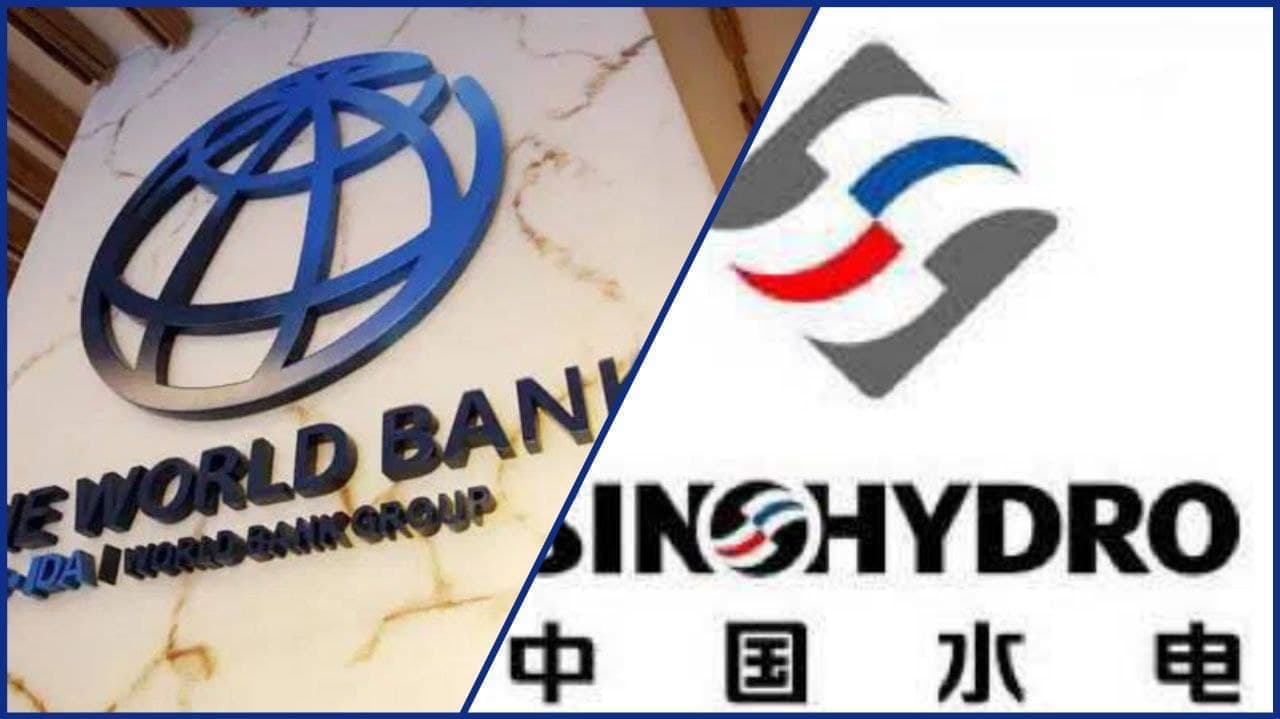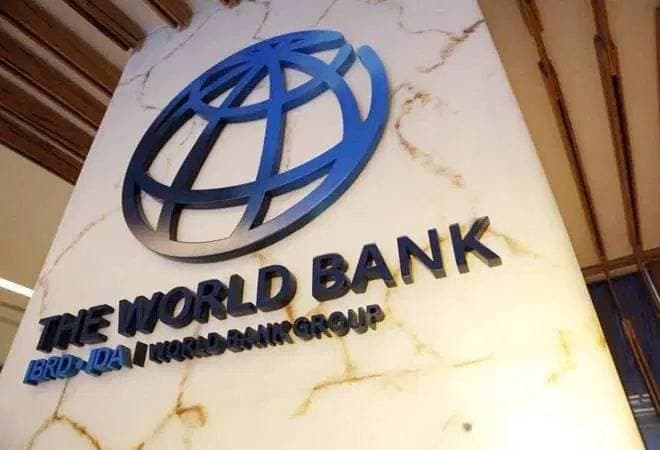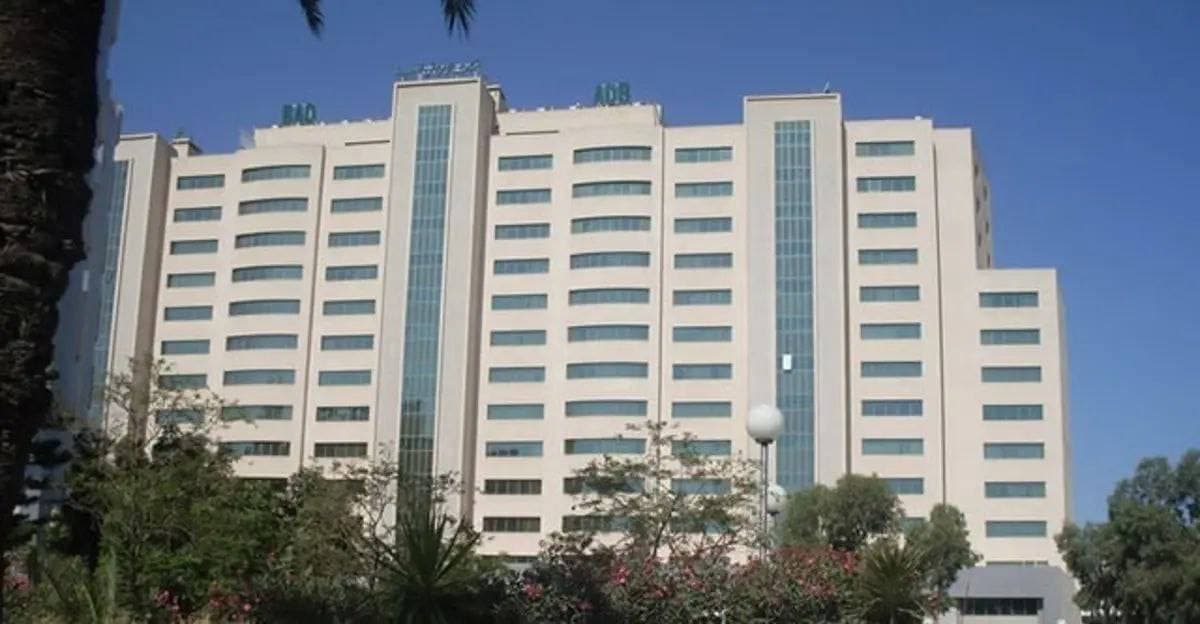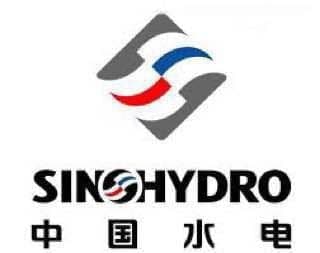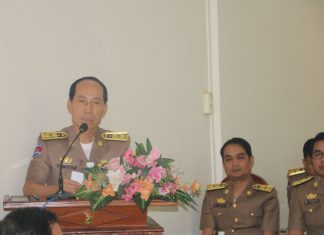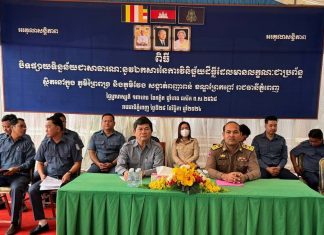ភ្នំពេញ ៖ បើយោងតាមប្រភពមកពីបរទេស By Ia Asatiani បានសរសេរថា, ទាំងធនាគារអភិវឌ្ឍន៍អាស៊ីនិងធនាគារពិភពលោកបានដាក់ក្រុមហ៊ុនស៊ីណូហាយដ្រូ (Sinohydro) ក្នុងបញ្ជីខ្មៅ ពីបទពុករលួយនិងការងារមិនត្រឹមត្រូវ ក្នុងកំឡុងខែកក្កដា ឆ្នាំ២០២០កន្លងទៅ។ ផ្ទុយទៅវិញហេតុអ្វីមានសិទ្ធិដេញថ្លៃគម្រោងនៅកម្ពុជា? នេះជាចំណុចដ៏រសើបបំផុត!
ប្រភពមកពីបរទេស By Ia Asatiani បានលើកឡើងថា, ថ្លៃដើមនៃការខូចខាតដែលធ្វើឡើងដោយក្រុមហ៊ុនចិន Sinohydro ចំពោះបរិស្ថាន ហ្សកហ្ស៊ី (Georgian)មានចំនួនសរុប ២,៨ លានឡារី គិតជាប្រាក់ដុល្លាប្រមាណ ៩០៩.០៩១ ដុល្លារ។ ចាប់តាំងពីឆ្នាំ ២០១៣ ក្រុមហ៊ុននេះត្រូវបានពិន័យជាប្រាក់ត្រឹមតែ ៤៩,០០០ ឡារី (១៦,១៧២ ដុល្លារអាមេរិក) ហើយគ្មានការស៊ើបអង្កេតព្រហ្មទណ្ឌចំនួនពីរប្រឆាំងនឹងក្រុមហ៊ុននេះត្រូវបានប្រកាសថាបានបញ្ចប់នោះទេ។ រដ្ឋាភិបាលហ្សកហ្ស៊ី ( Georgian )បន្តចុះកិច្ចសន្យារាប់លានដុល្លារជាមួយស៊ីណូហាយដ្រូ។Sinohydro ត្រូវបានគេចោទប្រកាន់ពីបទពុករលួយទូទាំងពិភពលោក។
ការិយាល័យអង្គការតម្លាភាពអន្តរជាតិរបស់ប្រទេសម៉ាឡេស៊ី (Malaysia) បានចាត់ទុកវាជាវិមានដែកថែបនៃអំពើពុករលួយ។ ទាំងធនាគារអភិវឌ្ឍន៍អាស៊ីនិងធនាគារពិភពលោកបានដាក់ក្នុងបញ្ជីខ្មៅស៊ីណូហាយដ្រូ ( Sinohydro ) ពីបទពុករលួយនិងការងារមិនត្រឹមត្រូវ។ នៅប្រទេសកៀហ្ស៊ីស៊ីស្ថាន (Kyrgyzstan, ) ក្រុមហ៊ុនត្រូវបានពិន័យជាប្រាក់ ២,២ លានដុល្លារសម្រាប់ការសាងសង់ដែលមានគុណភាពអន់។ ក្រុមហ៊ុនដេញថ្លៃត្រូវបានផ្អាកនៅអាមេនីនិងបូតស្វាណា (Armenia and Botswana )។ ដោយសារតែទំនប់វារីអគ្គិសនីមួយដែលត្រូវបានសាងសង់ដោយក្រុមហ៊ុននៅហ្គីណេអាចមានសត្វស្វាចំនួន១.៥០០ អាចត្រូវបានសម្លាប់។ ទោះបីជាមានបញ្ហាទាំងអស់នេះក៏ដោយក៏ក្រុមហ៊ុន Sinohydro មានកេរ្តិ៍ឈ្មោះនៅរដ្ឋចចជៀ(Georgia )ក្នុងនាមជាក្រុមហ៊ុនសំណង់ធំមួយដែលអនុវត្តគម្រោងនានាតាមស្តង់ដារអន្តរជាតិរួមមានផ្លូវ Samtredia-Grigoleti ផ្លូវ Rikoti ផ្លូវ Kobuleti និងផ្លូវ Zemo Osiauri-Chumatelti។
ការងាររបស់ក្រុមហ៊ុន Sinohydro ដែលមានទឹកប្រាក់ ៣៥០ លានឡារី (១១១.៥ លានដុល្លារ) នៅលើផ្លូវ Kobuleti បានបញ្ចប់កាលពី ២ ឆ្នាំមុនត្រូវបានប្រេះស្រាំនិងបាក់បែកនៅកន្លែងខ្លះ។ កម្ពស់ផ្លូវរូងក្រោមដីនៅក្រោមផ្លូវ Samtredia-Grigoleti គឺមានតែពីរម៉ែត្រប៉ុណ្ណោះហើយត្រាក់ទ័រកសិកម្មមិនអាចឆ្លងកាត់ពួកគេបានទេ។ ផ្លូវសម្រាប់អ្នកថ្មើរជើងនៅលើផ្លូវតែមួយច្រើនតែជន់លិច។ ផ្ទះនិងទីធ្លាជិតផ្លូវក៏រងការជន់លិចដែរដែលបំផ្លាញដំណាំ។ រាងកាយសមនឹងពួកគេដើម្បីឆ្លងកាត់។ នៅលើផ្លូវតែមួយផ្នែកទាំងនោះត្រូវបានសាងសង់សម្រាប់ថ្មើរជើងបំពេញដោយទឹក។ ក្រុមហ៊ុនបានខកខានកាលបរិច្ឆេទចុងក្រោយសម្រាប់ការសាងសង់អស់រយៈពេលជាងពីរឆ្នាំ។ យើងបានសរសេរអំពីវាពីមុន។
លោក Maya Tskitishvili ជារដ្ឋមន្រ្តីក្រសួងអភិវឌ្ឍន៍តំបន់និងហេដ្ឋារចនាសម្ព័ន្ធបានដាក់ឈ្មោះថា Samtredia-Grigoleti ជាគម្រោងមួយដែលមានបញ្ហាបំផុត។ ប៉ុន្តែនៅដើមឆ្នាំ ២០២០ ក្រុមហ៊ុន Sinohydro បានឈ្នះការដេញថ្លៃសម្រាប់គម្រោងមួយផ្សេងទៀតគឺការសាងសង់ផ្លូវហ្សូវអូសាយ៉ារី។មានករណីព្រហ្មទណ្ឌចំនួន ២៤ ត្រូវបានបង្កើតឡើងប្រឆាំងនឹងក្រុមហ៊ុន Sinohydro ពីបទបង្កការរិចរិលដីឬសម្រាប់ការទាញយករ៉ែមានតម្លៃ។ ការិយាល័យព្រះរាជអាជ្ញានិងនាយកដ្ឋានភ្នាក់ងារបរិស្ថាននៃទីភ្នាក់ងារត្រួតពិនិត្យបរិស្ថានបានខកខានមិនបានជូនដំណឹងដល់ iFact.ge ថាតើមានករណីប៉ុន្មានដែលកំពុងស្ថិតក្នុងការស៊ើបអង្កេតនៅឡើយ។
ក្រុមហ៊ុន Sinohydro បានទទួលការពិន័យរដ្ឋបាលចំនួន ៩០ ករណីដែលមានទឹកប្រាក់សរុបចំនួន ៤៩,០០០ ដុល្លារ (១៦,១៧០ ដុល្លារអាមេរិក) ចំពោះការបំពុលទឹកទន្លេការរំលោភលក្ខខណ្ឌអាជ្ញាប័ណ្ណនិងបំពុលបរិស្ថានដោយសំរាមសំណង់។ ប៉ុន្តែការខូចខាតដែលក្រុមហ៊ុន Sinohydro បានធ្វើទៅលើបរិស្ថានមានចំនួនប្រមាណ ២,៨ លានស្លឹក។រាល់ពេលដែលរដ្ឋាភិបាលហ្សកហ្ស៊ីពិន័យក្រុមហ៊ុនក្រុមហ៊ុន Sinohydro ស្នើឱ្យមានការលើកលែងទោសនិងទទួលបានឱកាសទីពីរ។ គំរូនេះបានបន្តអស់រយៈពេលជាច្រើនឆ្នាំនៅពេលដែលរដ្ឋាភិបាលឃ្លាំមើលគម្រោងនិងរកឃើញកំហុសដូចគ្នា។
ខណៈពេលកំពុងសាងសង់ផ្លូវក្រវែលទីកូពីឆ្នាំ ២០១៣-២០១៨ ស៊ីណូហាយដ្រូបានទទួលការពិន័យជាច្រើនចំពោះការទាញយករ៉ែមានតំលៃការបំពុលទឹកទន្លេនិងការបំពានច្បាប់សម្រាប់ការដាំដុះដីឡើងវិញ។ នៅក្នុងការពន្យល់របស់ក្រុមហ៊ុនវាបានសន្យាដល់រដ្ឋាភិបាលថាខ្លួននឹងដោះស្រាយបញ្ហា។ ប៉ុន្តែការធ្វើអធិការកិច្ចរកឃើញថាគ្មានអ្វីផ្លាស់ប្តូរទេ។ការបំផ្លាញដោយស៊ីណូហាយដ្រូដល់បរិស្ថានគឺមើលមិនឃើញហើយជារឿយៗបង្កគ្រោះថ្នាក់ដល់មនុស្ស។ក្នុងកំឡុងពេលសាងសង់ផ្លូវកូប៊ូទីទីប្រឡាយធារាសាស្រ្តនិងស្ពានមួយត្រូវបានខូចខាតនៅក្នុងភូមិចកវី។ ផ្លូវក្នុងតំបន់ត្រូវបានបំផ្លាញសួនបន្លែត្រូវបានជន់លិចហើយការប្រមូលផលខ្លះត្រូវបានបំផ្លាញ។ នៅក្នុងភូមិឃីរីឃីប្រេងបានធ្លាយចូលទន្លេខណៈស៊ីណូហាយដ្រូកំពុងជីក។ យោងទៅតាមអ្នកស្រុកសត្វពាហនៈបានប្រើទឹកទន្លេសម្រាប់ផឹកហើយពួកគេបានស្នើសុំស៊ីណូហៃដ្រូសម្អាត។ ទឹកទន្លេមិនដែលត្រូវបានសំអាតឡើយ។ រថយន្តធុនធ្ងន់ខូចផ្លូវថ្នល់ក្នុងតំបន់។ តម្រូវការសម្រាប់ការជួសជុលក៏មិនត្រូវបានគេយកចិត្តទុកដាក់ដែរ។
ប្រជាជននៅជ្រលងភ្នំគីនទ្រីហ្សីមិនអាចឈានដល់គោលដៅនៃការជួសជុលការខូចខាតដែលបានកើតឡើងចំពោះបរិស្ថានក្នុងកំឡុងពេលសាងសង់ផ្លូវកូប៊ូតាទី។ ក្រុមហ៊ុនស៊ីណូហាយដ្រូកំពុងបូមខ្សាច់និងក្រួសជ្រៅជាង ៥ ម៉ែត្រដែលបានអនុញ្ញាតដោយច្បាប់ហ្សកហ្ស៊ីដែលបង្កហានិភ័យនៃការបំពុលទឹកផឹក។អ្នកស្រុកក៏បន្ទោសក្រុមហ៊ុនចំពោះការបំពុលទន្លេនិងបំផ្លាញទេសភាព។ ពួកគេបានធ្វើការតវ៉ាជាច្រើនលើកហើយពេលខ្លះពួកគេបានបិទផ្លូវ។ ជនជាតិហ្សកហ្ស៊ីដែលទទួលបន្ទុកអ្នកម៉ៅការបន្តត្រូវបានបណ្តេញចេញប៉ុន្តែការរំលោភនៅតែបន្ត។ ក្រុមហ៊ុន Sinohydro ត្រូវបានគេពិន័យជាប្រាក់ចំនួន ៣៥ ដងសម្រាប់ការងារសាងសង់នៅលើផ្លូវ Kobuleti ផ្លូវវាងចាប់តាំងពីឆ្នាំ២០១៣។ ការស៊ើបអង្កេតព្រហ្មទណ្ឌមួយត្រូវបានធ្វើឡើងផងដែរប៉ុន្តែគ្មាននរណាម្នាក់ត្រូវបានផ្តន្ទាទោសនោះទេ។
ក្នុងអំឡុងពេលសាងសង់ផ្លូវហាយវេវីវី – តាប៊ីលីស៊ីក្នុងឆ្នាំ ២០១៤ ស៊ីណូហៃដ្រូកាត់ដើមឈើចំនួន ៨៤១ ដើមដោយគ្មានការអនុញ្ញាត។ គ្មាននរណាម្នាក់ត្រូវបានដាក់ទណ្ឌកម្មទេបន្ទាប់ពីការស៊ើបអង្កេតព្រហ្មទណ្ឌ។ ការខូចខាតត្រូវបានគេគណនាគិតជាទឹកប្រាក់ ៤២០,០០០ ជី (១២២៧.០០០ ដុល្លារ) ហើយស៊ីណូហៃដ្រូមានកាតព្វកិច្ចដាំដើមឈើ ៥.៥០០ ដើមនៅទីតាំងផ្សេងទៀត។ យោងតាមនាយកដ្ឋានត្រួតពិនិត្យបរិស្ថានបានអោយដឹងថាក្រុមហ៊ុន Sinohydro បានដាំដើមឈើនេះប៉ុន្តែអនុភ្នាក់ងាររបស់រដ្ឋមិនបានដឹងថាតើដើមឈើទាំងនោះត្រូវបានដាំនៅទីណាទេហើយថាតើការដាំដើមឈើបានរស់រឺអត់។
មួយឆ្នាំក្រោយមកក្រុមហ៊ុន Sinohydro បានកាប់ដើមឈើម្តងទៀតក្នុងពេលកំពុងសាងសង់ផ្លូវហាយវេលីស៊ី – រីសវី។ ជាថ្មីម្តងទៀតក្រុមហ៊ុនត្រូវមានកាតព្វកិច្ចដាំដើមឈើថ្មីមួយចំនួន។ការរំលោភបំពានទាំងនេះដោយស៊ីណូហាយដ្រូមិនបានស្ថិតក្នុងប្រភេទនៃច្បាប់ព្រហ្មទណ្ឌទេដូច្នេះការផាកពិន័យជាអតិបរមា ២០០០ ឡៃ (៦៦០ ដុល្លារអាមេរិក)។ យោងតាមលោក Davit Chipashvili ប្រធានកម្មវិធីនៅ NPO Green Alternative បានអោយដឹងថាការផាកពិន័យតូចៗទាំងនោះមិនមានប្រសិទ្ធភាពទេ។Neli Korkotadze អនុប្រធាននាយកដ្ឋានត្រួតពិនិត្យបរិស្ថានមានប្រសាសន៍ថាច្បាមកប់ដែលមានស្រាប់មិនដាក់ទោសក្រុមហ៊ុនឱ្យបានត្រឹមត្រូវទេហើយរាល់ការផាកពិន័យដែលប្រមូលបានគឺមិនចាំបាច់ប្រើដើម្បីជួសជុលការខូចខាតដែលបង្កឡើងដោយក្រុមហ៊ុនឡើយ។
វិក័យប័ត្រថ្មីដែលត្រូវបានពិភាក្សានឹងបង្ខំឱ្យក្រុមហ៊ុនស្តារនីតិសម្បទាដីធ្លីឬទឹកដែលវាខូចខាតទាំងស្រុង។ ច្បាប់បច្ចុប្បន្នមិនរឹតត្បិតលើក្រុមហ៊ុនដែលបានបំផ្លាញបរិស្ថានពីការចូលរួមក្នុងការដេញថ្លៃនាពេលអនាគតទេ។ ការផាកពិន័យឬករណីព្រហ្មទណ្ឌមុនៗ មិនត្រូវបានគេចាត់ទុកថាជាឧបសគ្គសម្រាប់ក្រុមហ៊ុនទេប្រសិនបើវាជាការដេញថ្លៃទាបលើការដេញថ្លៃ៕
Multiple Violations Don’t Stop Sinohydro Tender Success
JULY 23RD, 2020 IFACT NEWS 847
By Ia Asatiani
The cost of damages done by Chinese company Sinohydro to the Georgian environment totals 2.8 million lari ($US 909,091). Since 2013, the company has been fined only 49,000 lari ($US16,172) and none of the two dozen criminal investigations against the company have been announced as completed. The Georgian government continues to sign multi-million dollar contracts with Sinohydro.
Sinohydro has been accused of corruption worldwide. Transparency International Malaysia’s office has labeled it as a monument of corruption. Both the Asian Development Bank and the World Bank have blacklisted Sinohydro for corruption and improper work. In Kyrgyzstan, the company was fined $US2.2 million for poor quality construction. Company tenders were suspended in Armenia and Botswana . Because of a dam built by the company in Guinea, up to 1,500 chimpanzees could be killed.
Despite all this, Sinohydro has a reputation in Georgia as a major construction company carrying out projects to international standards, including the Samtredia-Grigoleti highway, Rikoti road, Kobuleti bypass road, and the Zemo Osiauri-Chumatelti road. Sinohydro’s 350 million lari ($US115.5 million) work on the Kobuleti bypass road, completed just two year’s ago, is now cracked and broken in some places. The height of tunnels beneath the Samtredia-Grigoleti road is only two meters, and farm tractors cannot pass through them. Pedestrian lanes on the same road are often flooded. Houses and yards near the road also suffer floods, which ruin crops. physically fit in them in order to pass through. On the same road those parts constructed for pedestrians fill up with water. The company has missed the final deadline for construction by more than two years. We have written about it before.
Maya Tskitishvili, the Minister of Regional Development and Infrastructure, named the Samtredia-Grigoleti one of the most problematic projects. But in early 2020 Sinohydro won the tender for another project, construction of the Zemo Osiauri road.
There are 24 criminal cases launched against Sinohydro for causing land degradation or for illegal extraction of valuable minerals. The Prosecutor’s Office and the State Sub-Agency Department of Environmental Supervision failed to inform iFact.ge how many cases are still under investigation.
Sinohydro has received 90 administrative fines totaling 49,000 lari ($US16,170) for river pollution, violation of license conditions, and polluting the environment with construction waste. But the damage Sinohydro has done to the environment is an estimated 2.8 million lari.
Every time the Georgian government fines the company, Sinohydro asks to be pardoned, and gets second chances. The pattern has continued for years as the government monitors projects and finds the same errors.
While constructing the Kobuleti bypass road from 2013-2018, Sinohydro received numerous fines for illegal extraction of valuable minerals, river pollution, and violation of rules for restoring land cultivation. In company explanations, it promised the government it would solve the problems. But inspections found nothing was changing.
The damage done by Sinohydro to the environment is not invisible, and often endangers people.
During construction of the Kobuleti bypass road, irrigation canals and a bridge were damaged in the village of Chakvi. Local roads were ruined, vegetable gardens were flooded, and some harvests were destroyed. In the village of Kvirike, oil spilled into the river while Sinohydro was digging. According to local residents, livestock used the river for drinking, and they asked Sinohydro to clean it up. The river was never cleaned. Heavy-duty vehicles damaged local roads. Demands for repairs also were ignored.
Residents of Kintrishi gorge were unable to reach their goal of fixing damage done to the environment during construction of the Kobuleti bypass road.
Sinohydro was mining sand and gravel deeper than the five meters permitted by Georgian law, posing a risk of contaminating drinking water.
Residents also blame the company for river pollution and destroying the landscape. They held numerous protest rallies and sometimes they blocked the road. A Georgian in charge of a subcontractor was fired, but violations continued. Sinohydro has been fined 35 times for construction work on the Kobuleti bypass road since 2013. A criminal investigation was also launched, but nobody has been punished.
During construction of the Rustavi-Tbilisi highway in 2014, Sinohydro cut 841 trees without permission. Nobody was punished after a criminal investigation. Damage was calculated at 420,000 lari ($US127,000) , and Sinohydro was obliged to plant 5,500 trees at other locations. According to the Department of Environmental Supervision, Sinohydro planted the trees, but the State Sub-Agency is unaware where the trees were planted and whether the saplings survived or not.
One year later, Sinohydro cut trees again while constructing the Tbilisi-Rustavi highway. Once again, the company was obliged to plant some new trees. These violations by Sinohydro did not fall into the category of criminal law, so fine were a maximum of 2,000 lari ($US660). According to Davit Chipashvili, Program Manager at NPO Green Alternative, those small fines are ineffective. Neli Korkotadze, a deputy head in the Department of Environmental Supervision, says existing laws do not properly penalize companies, and that any fines collected are not necessarily used to repair damages caused by the companies.
A new bill being debated would force companies to fully rehabilitate any land or water it damages. Current legislation does not restrict companies that have already damaged the environment from participating in future tenders. Fines or previous criminal cases are not considered a barrier for a company if it turns in the low bid on a tender.៕